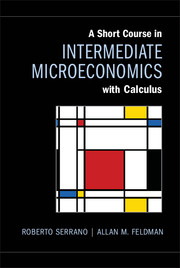1 - Introduction
Summary
Economists have always studied the economic problem. The nature of the economic problem, however, has changed over time. For the classical school of economists (including Adam Smith (1723–1790), David Ricardo (1772–1823), Karl Marx (1818–1883), and John Stuart Mill (1806–1873)), the economic problem was to discover the laws that governed the production of goods and the distribution of goods among the different social classes: land owners, capitalists, workers. These laws were thought to be like natural laws or physical laws, similar to Newton's law of gravitational attraction. Forces of history, and phenomena such as the Industrial Revolution, produce “universal constants” that govern the production of goods and the distribution of wealth.
Toward the end of the nineteenth century, however, there was a major shift in the orientation of economics, brought about by the neoclassical school of economists. This group includes William Stanley Jevons (1835–1882), Leon Walras (1834- 1910), Francis Ysidro Edgeworth (1845–1926), Vilfredo Pareto (1848–1923), and Alfred Marshall (1842–1924). The neoclassical revolution was a shift in the emphasis of the discipline, away from a search for natural laws of production and distribution, and toward a new version of the economic problem, the analysis of decision making by individuals and firms.
In this book we will describe modern microeconomics, which mostly follows the neoclassical path. For us, and for the majority of contemporary microeconomists, the economic problem is the problem of the “economic agent,” who lives in a world of scarcity. Economists focus on the fact that resources are limited or constrained.
- Type
- Chapter
- Information
- Publisher: Cambridge University PressPrint publication year: 2012



